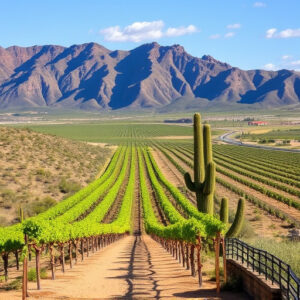Southern Arizona wineries embrace sustainable practices, particularly dry farming, to thrive in an arid climate. This ancient technique, adapted by local viticulturists, minimizes water usage and promotes robust, flavorful wines. Visitors can explore these eco-friendly methods, learn about unique microclimates, and experience the region's distinct terroir through tastings, immersing themselves in a sustainable wine culture that benefits both the environment and local communities.
Embark on a journey through Southern Arizona’s thriving wine scene, where sustainability meets viticulture. This region has emerged as a pioneer in eco-friendly wine production, boasting unique vineyards practicing dry farming techniques. Explore these sustainable practices and discover how local winemakers are revitalizing the industry. From the lush vineyards to the distinct flavors, this guide covers everything you need to know about touring Southern Arizona wineries committed to preserving our planet.
- Exploring Sustainable Practices in Southern Arizona Wineries
- Dry Farming Techniques: A Unique Approach to Viticulture
- The Rise of Eco-Friendly Wine Production in the Region
- Tour Preparation: What to Expect at These Vineyards
- Benefits and Impact on Local Ecosystems and Communities
- Savoring the Tastings: Unique Flavors from Sustainable Wines
Exploring Sustainable Practices in Southern Arizona Wineries
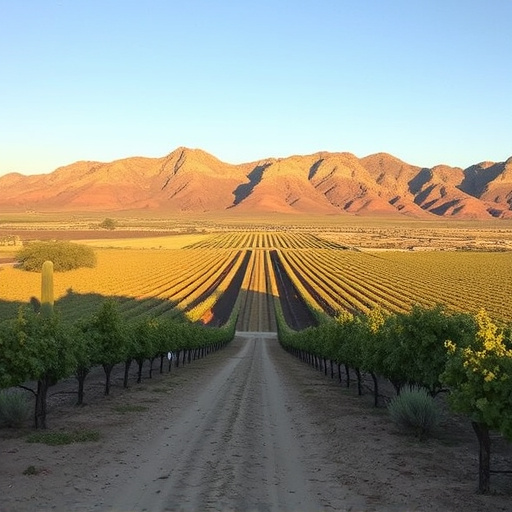
Southern Arizona, with its unique climate and fertile soil, has become a thriving hub for sustainable wine production. Many wineries in this region are embracing dry farming techniques, which not only preserve water but also enhance the quality and flavor of their grapes. By reducing reliance on irrigation, these forward-thinking vineyards contribute to a more eco-friendly approach to winemaking.
Exploring these sustainable practices offers visitors an opportunity to discover how southern Arizona wineries are revolutionizing the industry. The region’s hot, dry summers and cool, wet winters create ideal conditions for dry farming, where vines draw water from deep within the soil, resulting in robust and distinctively flavored wines. This natural watering method not only conserves precious resources but also encourages a more resilient and healthier vine ecosystem.
Dry Farming Techniques: A Unique Approach to Viticulture
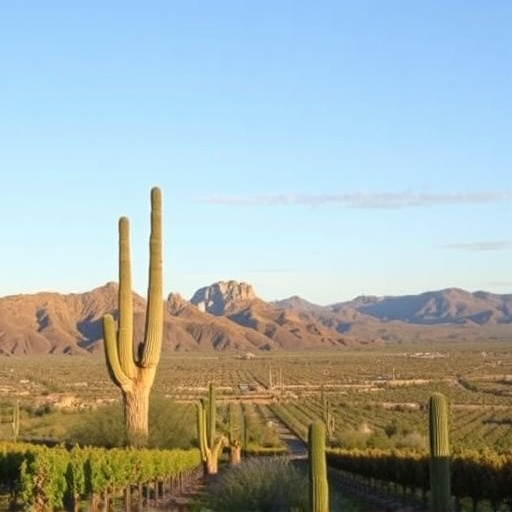
In the heart of Southern Arizona, wineries are embracing an ancient yet innovative practice known as dry farming, transforming the way grapes are grown and cultivating a unique sense of terroir. This traditional method, where vines rely solely on rainfall for moisture rather than irrigation, is gaining traction among sustainable-minded viticulturists. By forgoing synthetic hydration, these forward-thinking producers not only reduce their environmental impact but also create wines with distinct character and depth.
Dry farming presents a challenge in arid regions like Southern Arizona, where water availability can be limited. However, it encourages deep root systems that allow vines to access water from further beneath the soil, promoting resilience during droughts. The resulting grapes often exhibit higher sugar levels and concentrated flavors, leading to wines with remarkable aroma and taste profiles. This sustainable approach is a game-changer for local wineries, showcasing their commitment to both ecological preservation and crafting exceptional, distinctive wines that capture the essence of their unique terroir.
The Rise of Eco-Friendly Wine Production in the Region
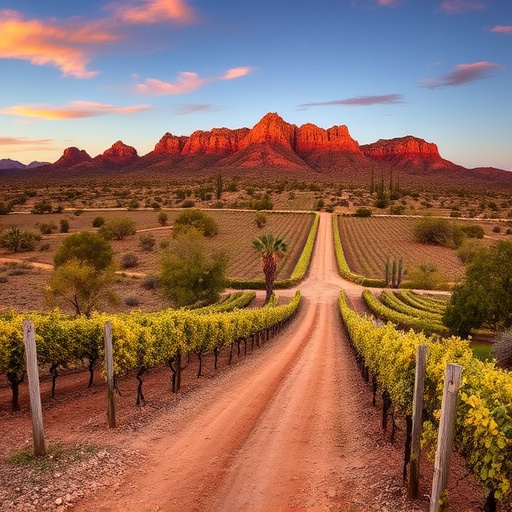
In recent years, the wine industry in Southern Arizona has undergone a significant transformation as local wineries embrace eco-friendly practices. This shift is particularly notable among sustainable vineyards adopting dry farming techniques, which minimize water usage and rely on natural rainfall. The region’s arid climate has long presented unique challenges for viticulture, but it also offers an opportunity to showcase resilient and innovative wine production methods.
Southern Arizona wineries are now leading the charge in environmental stewardship, attracting wine enthusiasts who prioritize sustainable choices. This growing trend not only benefits the local ecosystem but also contributes to a global movement towards more eco-conscious agriculture. As consumers become increasingly aware of the environmental impact of their food and beverage choices, these sustainable vineyards are poised to thrive while setting a new standard for the industry.
Tour Preparation: What to Expect at These Vineyards
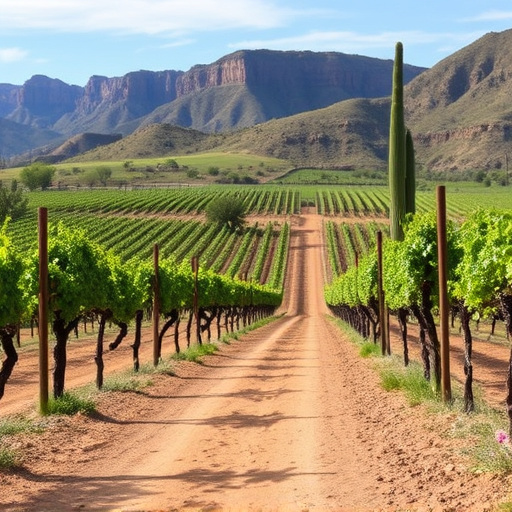
When planning a tour of sustainable vineyards in Southern Arizona, visitors can expect a unique and immersive experience. These wineries prioritize environmental stewardship and employ dry farming methods, meaning they rely on natural rainfall rather than irrigation to nurture their vines. Tour preparation involves embracing this holistic approach to viticulture.
Expect to learn about the region’s distinct microclimates and how they influence grape varieties. Guides will share insights into soil health, organic practices, and the art of canopy management. The tour offers a chance to witness firsthand the beauty of dry-farmed vineyards, nestled amidst the stunning landscapes of Southern Arizona wineries, providing both an educational and visually captivating experience.
Benefits and Impact on Local Ecosystems and Communities
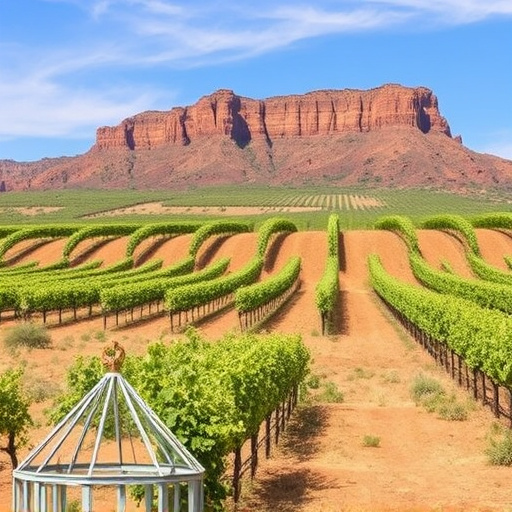
Sustainable vineyard practices, such as dry farming, offer significant advantages for local ecosystems and communities in Southern Arizona’s wine regions. By reducing the reliance on irrigation, these techniques conserve precious water resources while promoting healthier soil and biodiversity. The absence of chemical fertilizers and pesticides creates a more harmonious environment, benefiting nearby wildlife and natural habitats. This eco-friendly approach not only preserves the region’s unique ecological identity but also fosters a sense of stewardship among winemakers.
Moreover, dry farming supports the well-being of local communities by encouraging a more traditional and authentic wine production method. It attracts tourists interested in sustainable practices, contributing to the economic vitality of southern Arizona wineries. This shift towards sustainability can lead to a stronger connection between producers and consumers, fostering pride in locally crafted wines and the preservation of agricultural traditions.
Savoring the Tastings: Unique Flavors from Sustainable Wines
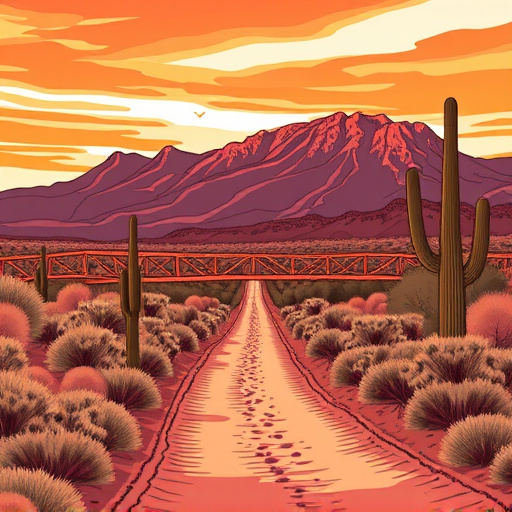
When visiting sustainable vineyards in Southern Arizona, wine enthusiasts can look forward to unique and distinct flavors that come from dry farming practices. These wineries are not only committed to environmental stewardship but also produce wines with characteristics that set them apart from their conventional counterparts. The lack of irrigation results in grapes that develop intense flavors and higher sugar content, leading to well-balanced, complex wines.
Tasting these sustainable wines offers a one-of-a-kind experience. Visitors can expect to discover notes of fruit that are more concentrated and vibrant, reflecting the terroir of the region. The dry farming techniques not only ensure high-quality grapes but also contribute to the distinct regional character in each glass. Southern Arizona wineries are proving that sustainability and exceptional wine quality can go hand in hand.
Touring sustainable vineyards practicing dry farming techniques in Southern Arizona offers an immersive experience that showcases the region’s commitment to eco-friendly wine production. By embracing unique approaches like dry farming, local winemakers are not only crafting exceptional wines but also contributing positively to local ecosystems and communities. Prepare for a journey through picturesque landscapes, learn about sustainable practices, and savor the distinct flavors these wines offer. Discover why Southern Arizona wineries are becoming a game-changer in the world of sustainable viticulture.
